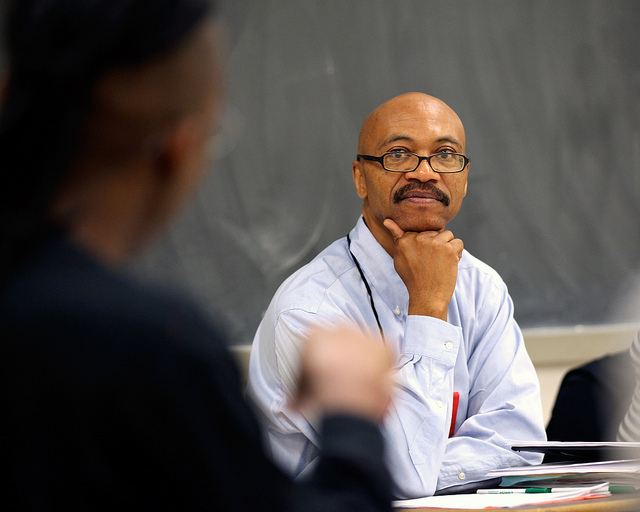
By Edward Henderson
“It is our duty to fight for our freedom. It is our duty to win. We must love each other and support each other. We have nothing to lose but our chains.” This quote by Assata Sakur has become the rallying cry for the #BlackLivesMatter movement. Protest attendees chant the quote with passion and fervor as a sign of unity and dedication to bring change to a nation that sorely needs it. San Diego State University’s Africana Studies department is doing its part in the fight for freedom by incorporating the #BlackLivesMatter discussion into its curriculum.
Educational Activism
Africana Studies Department chair Dr. Charles Toombs was approached by a Dean from the college of Arts and Letters about starting a #BlackLivesMatter course at SDSU after seeing the popularity of Dartmouth University’s recently added course. Dr. Toombs agreed to incorporate the #BlackLivesMatter name as a subtitle to an existing class entitled The Black Urban Experience.
“The reason why I insisted that we use the original course was because I wanted folks to know even though Black Lives Matter is a hot topic now, its issues are ongoing,” said Dr. Toombs.
The course is an interdisciplinary effort where 7 different professors will lecture for 2 weeks on topics imperative to understanding and improving the black urban experience. Topics will include; Black Lives Matter activism and protest, institutional racism, Black unemployment and underemployment, Black politics in the Obama Era, failing African American students and exploring the struggles of Blacks with disabilities.
“We want our students to be so concerned about the subject matter that they’re prepared to take action,” said Dr. Toombs. “If there’s a problem identified, we want them to ask themselves how they can go out and solve it.”
Another focus of the course is creating a space for students to share their experiences in an environment where their voices can be heard by a diverse audience. 40 students are currently enrolled in the course this semester and it is comprised of multiple races and backgrounds.
“What stands out to me is when they talk about their experiences. I think when you feel something at the level that the students are expressing, they are going to become activists,” said Dr. Toombs. “Some of them may have never thought they would become activists … I think some of them are realizing now that they have responsibility to give back to their community.”
Changing the System
The irony of current events involving police brutality and ignorant commentary surrounding race in the media is the eerie similarities to moments in the 60’s when racism was much more overt. These occurrences bring up the question of what needs to be done to ensure contemporary movements solve the real issue.
“Most of the problems that black people are facing is because they don’t have the opportunity to do things,” said Dr. Toombs. “Usually it’s because of systemic or institutional racism. But even with those barriers you have to be prepared to work with the system that’s there.”
Professors involved with the Black Uban Experience: #BlackLivesMatter course are dedicated to preparing students to identify and hopefully infiltrate the systems that need to be changed to most to insure the cycle ends with their generation.
“There is an opportunity to rise up to the occasion of their generation and do what previous generations have done,” said Dr. Toombs.
At the end of this course, students will be empowered with knowledge to face the challenge of race head on. To echo the sentiment of Assata Shakur’s quote, it will be their “duty to win.”

